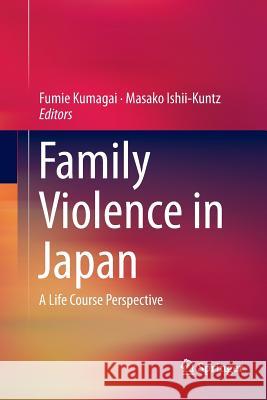Family Violence in Japan: A Life Course Perspective » książka
topmenu
Family Violence in Japan: A Life Course Perspective
ISBN-13: 9789811090745 / Angielski / Miękka / 2018 / 175 str.
Kategorie:
Kategorie BISAC:
Wydawca:
Springer
Język:
Angielski
ISBN-13:
9789811090745
Rok wydania:
2018
Wydanie:
Softcover Repri
Ilość stron:
175
Waga:
0.28 kg
Wymiary:
23.39 x 15.6 x 1.07
Oprawa:
Miękka
Wolumenów:
01











